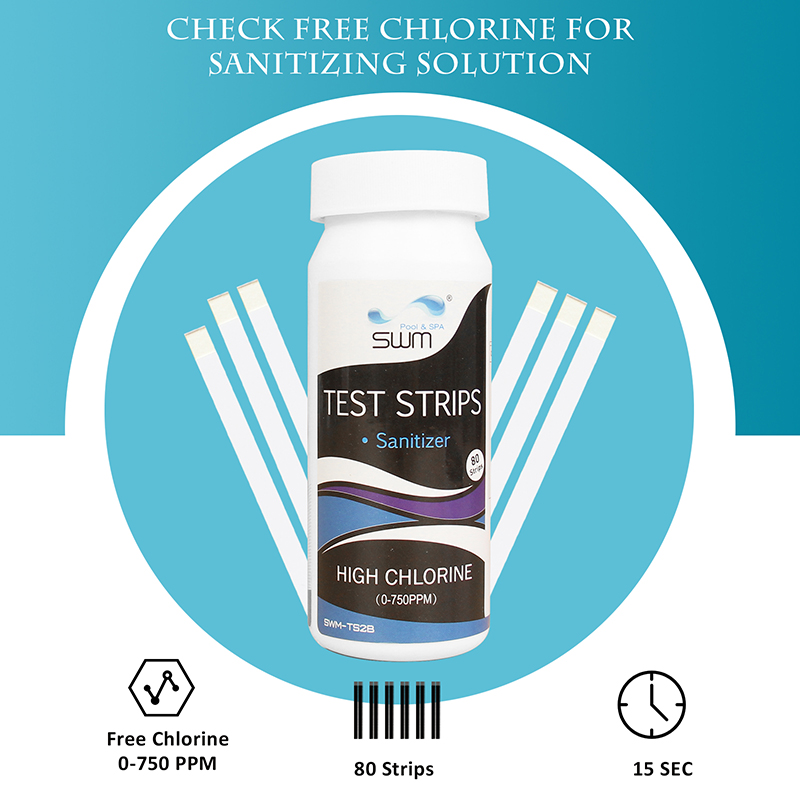Introduction:
Pool test strips are essential tools for maintaining the water quality of your pool. To obtain accurate and reliable results, it is crucial to store these test strips properly. In this article, we will discuss the significance of proper storage and provide useful tips to ensure the longevity and effectiveness of your pool test strips.

Why Proper Storage Matters: Storing your pool test strips correctly is essential for several reasons:
- Preservation of Accuracy: Exposure to moisture, sunlight, extreme temperatures, or other unfavorable conditions can lead to the degradation of test strip components. This degradation can affect the accuracy of the results, leading to incorrect readings and potentially incorrect pool water adjustments.
- Prolonged Shelf Life: Proper storage techniques can significantly extend the shelf life of your pool test strips. This ensures that you can use them for an extended period without compromising their effectiveness.
- Cost-Efficiency: By properly storing your test strips, you reduce the risk of damage or premature expiration. This saves you from having to frequently purchase new strips, resulting in cost savings in the long run.
Tips for Proper Test Strip Storage:
- Keep Them in Their Original Packaging: Pool test strips are usually packaged in airtight, moisture-resistant containers. It is advisable to keep them in their original packaging to protect them from external elements. The packaging is designed to maintain the integrity of the strips and prevent moisture absorption.
- Store in a Cool and Dry Place: Excessive heat and humidity can affect the accuracy and lifespan of ph test strips. Therefore, it is crucial to store them in a cool and dry place. Avoid locations near direct sunlight, heaters, or areas with high humidity, such as bathrooms or pool storage rooms.
- Avoid Exposure to Moisture: Moisture is a common enemy of pool test strips. Ensure that the storage area is dry and free from any potential sources of moisture, such as leaky pipes or open water containers. Additionally, refrain from touching the test strips with wet hands or placing them on wet surfaces.
- Do Not Freeze: Extreme temperatures, including freezing, can damage the chemical components of test strips. Avoid storing them in areas susceptible to freezing, such as garages or outdoor sheds. Freezing can compromise the accuracy of the results and render the test strips unusable.
- Check Expiration Dates: Always check the expiration dates on the test strip packaging. Expired test strips may provide inaccurate readings, leading to incorrect pool water adjustments. It is recommended to regularly replace expired strips to ensure reliable results.
- Keep Away from Chemicals: Avoid storing test strips near chemicals or substances that emit strong odors. Chemical fumes can potentially interfere with the test strip’s reactivity and produce inaccurate readings. Store them separately from pool chemicals in a well-ventilated area.
Conclusion:
Proper storage of pool test strips is essential for maintaining their accuracy, prolonging shelf life, and ensuring cost-efficiency. By following these simple tips, you can protect your test strips from moisture, extreme temperatures, and other unfavorable conditions. Remember to keep them in their original packaging, store them in a cool and dry place, avoid exposure to moisture, and check expiration dates regularly. By storing your pool test strips correctly, you can confidently rely on accurate results to maintain the optimal water chemistry of your pool.
